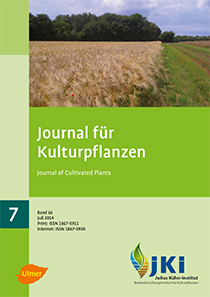Infrastructures for agroecological field research – Current situation and future prospectsPosition paper of the DFG Senate Commission on Agroecosystem Research
Keywords:
Site-specific agricultural science, field trial network, data repositoryAbstract
Large-scale, long-term field experiments are a core element of site-specific agricultural science. To create basic knowledge of site-adapted and regional agricultural production potentials as well as to develop ecologically sound and innovative plant production systems with high productivity and resilience requires high-capacity research infrastructures that cover relevant climatic gradients and soils and that promote an interdisciplinary dialog. The position paper of the Senate Commission on Agroecosystem Research of the Deutsche Forschungsgemeinschaft shows the current status and future requirements on infrastructures for agroecological field research. To optimize the infrastructure for agricultural field trials, a network of experimental sites that cover prototype landscape functions is suggested, enabling interdisciplinary investigations of productivity, resilience and resource efficiency in the landscape context. Further it is necessary to provide standardized data in open access data repositories to the scientific community.
DOI: 10.5073/JfK.2014.07.02, https://doi.org/10.5073/JfK.2014.07.02
Downloads
Published
Issue
Section
License
The content of the journal is licensed under the Creative Commons Attribution 4.0 License. Any user is free to share and adapt (remix, transform, build upon) the content as long as the original publication is attributed (authors, title, year, journal, issue, pages).
The copyright of the published work remains with the authors. The authors grant the Journal of Cultivated Plants, the Julius Kühn-Institut and the OpenAgrar repository the non-exclusive right to distribute and exploit the work.







